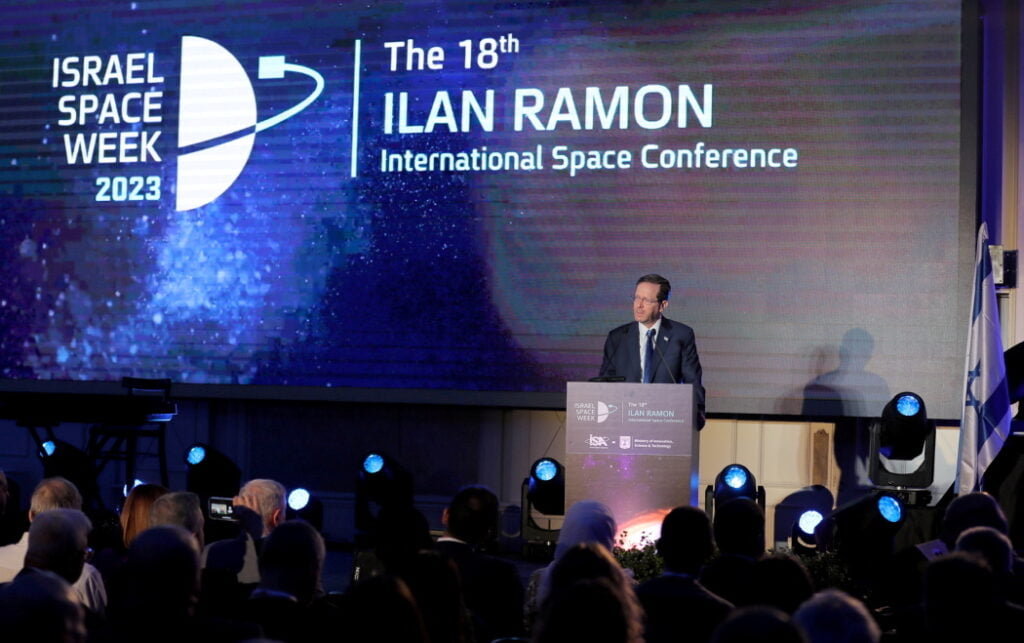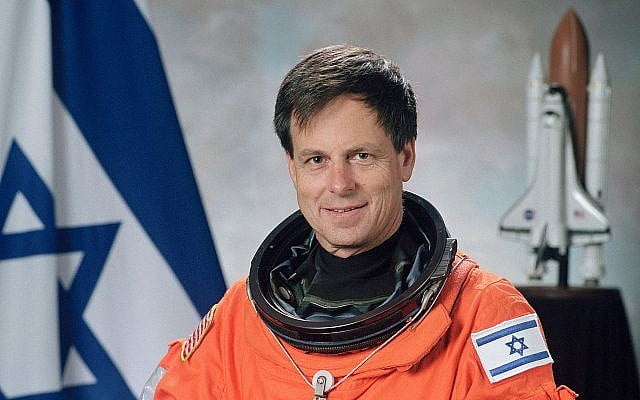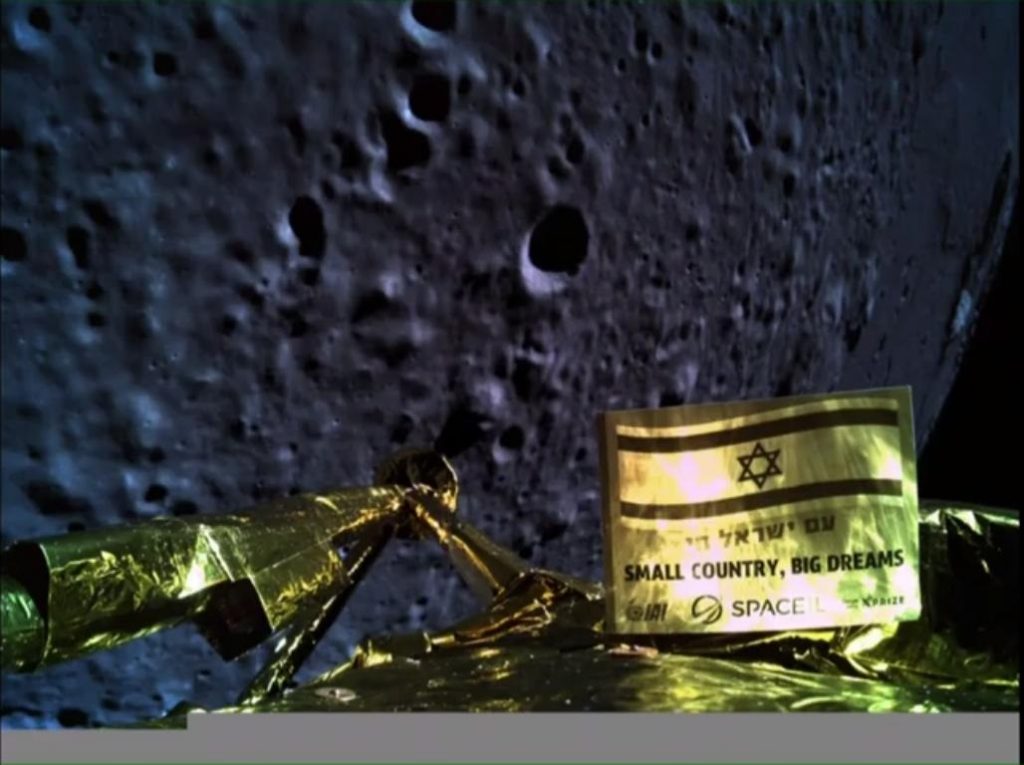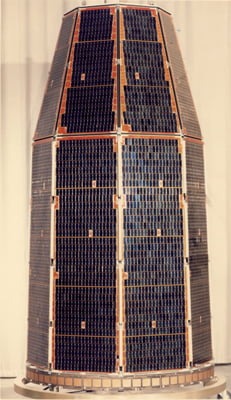Israel may be a tiny country, barely visible from space, but it’s ahead of most of the world in getting there.
In September 1998 it became only the eighth country in the world to put an object in space, with the launch of its Ofek 1 reconnaissance satellite.
Two decades later its Beresheet unmanned spacecraft reached the Moon, again placing it in eighth position after the Soviet Union, the United States, Japan, the European Space Agency, China, India and Luxembourg.
And it remains at the forefront of the global space race. Fifteen years ago, Israel became a world leader in cybersecurity. Today it’s applying the same intellectual and entrepreneurial skills to space research and is home to more than 60 space-related startups.
Little surprise then that some of the biggest players from the biggest space countries came to the Ilan Ramon International Space Conference, in Tel Aviv, on Tuesday and Wednesday.
“The international presence at the conference has been huge,” said Prof. Dan Blumberg, a renowned space scientist, researcher on NASA missions and chair of the Israel Space Agency.

“They see Israel as a magnet, they want to connect to the community, they want to connect with our startups, they want to look at the applications we’re developing and they want to work with us.”
The theme of the conference was “Earth and Space Becoming One” and it attracted delegates from NASA, as well as the German, Italian, Greek, Portuguese, Morocco, and United Arab Emirates’ space agencies, as well as scientists and officials representing France, Uzbekistan and beyond.
Israel’s President Isaac Herzog, who opened the event, said: “The last great era of space exploration was driven by the competition of the Cold War. I believe that the new era of space exploration can be driven by the goodwill of our warm peace.

“Let us walk in the footsteps, or rather soar in the flight paths, of Ilan Ramon and his fellow astronauts, and move upward and onward, harnessing the power of space, for the promise of Earth.”
Ramon, 48, a former Israeli fighter pilot, died during re-entry to Earth in February 2003. He was Israel’s first man in space, followed by Eytan Stibbe in 2022, a paying “space tourist” to the International Space Station.
Today, Israel’s highest profile space project is Beresheet 2, successor to Beresheet, the small robotic lunar lander launched by the non-profit Space IL in 2019.

It was a competition entry for the Google Lunar X Prize, with a $20 million first prize. None of the other 32 original entrants met the challenge of “landing a robot on the surface of the Moon, traveling 500 meters over the lunar surface, and sending images and data back to the Earth”.
But Beresheet, which flew the Israeli flag and the message “Small country, big dreams”, was awarded $1 million for the best effort after it reached the Moon, but lost communications in the final minutes and crashed onto its surface.
Prof. Blumberg says he’s “150 percent confident” that its successor Beresheet 2, will arrive safely.
Sign up for our free weekly newsletter
Subscribe
“Everything’s going well. It’s a big challenge and it’s not a long timeline. We want to have everything ready by 2025,” he said. “It will have an orbiter that will orbit the moon, and two landers that will land on the surface.”
But Israel is also working on a huge range of other space projects. He wants to double the number of space-tech companies in Israel, and quadruple the number of employees to 10,000.
“We want to increase the number of people involved in this industry, and turn the space industry into one of the growth engines for this country, and have a fully-fledged economy around it,” he said.
Many businesses in Israel wouldn’t normally be thought of as space industries, but rely heavily on satellites, such as Waze, Israel’s driver navigation software.
“You don’t think of Waze being part of the space industry. But Waze doesn’t exist without GPS and that means communicating with space.
“So we want to have every element and every layer within the space industry in the economy and provide more livelihoods in Israel.”
The space industry is expanding exponentially. More than half of all the 4,800 or so operative satellites orbiting the Earth were launched in 2022.
Israel has, of necessity, become a world leader in developing micro-sats – tiny satellites weighing as little as 10kg. It can’t launch east, taking advantage of the Earth’s spin, because of its Arab neighbors, so it makes them as small as possible, to overcome the loss of energy and launches them in the opposite direction.
“We were the eighth country in the world to gain full access to space. That’s not a small achievement for a tiny country,” says Prof. Blumberg.
“This conference has been going on for 18 years, trying to bring together the entire space community in Israel.

“The space community has different elements. The first is the space industry itself, which in Israel is not very large, but it’s achieved a lot.
“The second is the academic research behind that industry (such as the Black Holes Conference taking place alongside the main event or Israel’s Ultrastat satellite that will “revolutionize our understanding of the hot transient universe”) and the third is education.
“Space triggers the imagination, looking up at the heavens and understanding what goes on over there. So we also use space to ignite the imagination and the motivation among kids to study.”
Related posts

Editors’ & Readers’ Choice: 10 Favorite NoCamels Articles

Forward Facing: What Does The Future Hold For Israeli High-Tech?

Impact Innovation: Israeli Startups That Could Shape Our Future




Facebook comments